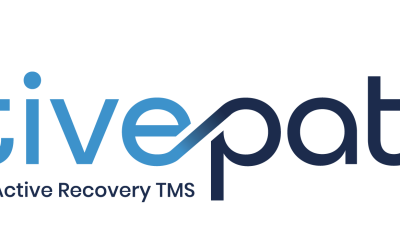Finding the best treatment for depression is an individual experience. In spite of the broad spectrum of treatment options available, it can be tough to create a treatment plan that will address your specific symptoms, desires, goals, and concerns. Depression affects millions of people across the country, and the causes and symptoms vary. Some individuals experience seasonal winter blues known as Seasonal Affective Disorder. Others struggle year-round with symptoms like insomnia, irritability, and anxiety. Just as there’s no single definitive form of depression, there’s no blanket treatment that will work the same for everyone, and many patients find standard treatment strategies frustratingly cookie-cutter in nature.
While the psychotherapeutic and pharmacological treatment routes are the proper place to begin, they don’t always produce lasting results. For many, the initial trial and error process of finding the right medication is painfully slow and fraught with intolerable side effects. Plus, the idea of long-term pharmacological dependence can be off-putting. After months or years of searching for an effective therapy/medication combo without success, many patients are left wondering where to turn next.
While shown to be effective, Electroconvulsive Therapy (ECT) is an intimidating prospect. The anesthesia and potential side effects are cause enough for many to relegate this treatment to the option of last resort.
Transcranial Magnetic Stimulation (TMS), on the other hand, is a therapeutic option that has been gaining in popularity over the last decade. Approved in 2008 by the FDA as a treatment for depression, TMS therapy targets the dorsolateral prefrontal cortex (dlPFC), an area of the brain involved in mood regulation and emotional motivation. While there is much about the brain that is not fully understood, the prevailing theory is that the dlPFC is less active in patients with depressive symptoms than in those without symptoms. TMS treatment uses a magnetic field not dissimilar to an MRI to stimulate the neurons in the dlPFC and promote cellular activity. As cellular activity increases, so too does the brain’s ability to regulate mood and emotional motivation. In studies, TMS therapy has been shown to produce benefits comparableto the more invasive ECT.
So who is a good candidate for TMS therapy? If you’ve already pursued traditional medication and haven’t experienced relief, then TMS treatment would be a good next step to consider.
We want to be able to craft a specific plan that can address your individual needs. Be sure to let us know prior to your appointment for TMS therapy if [1]:
- You have a history of epilepsy or seizures
- You have suffered brain trauma from an injury
- You suffer from mental health disorders other than depression, e.g., bipolar, schizophrenia, substance abuse
It’s also important to let us know if you have any metal or electronic objects in your body. We can discuss how these might affect your TMS treatment. Common examples of such objects include:
- Aneurysm clips or coils
- Stents
- Implanted vagus nerve or deep brain stimulators
- Other implanted electrical devices, such as pacemakers or medication pumps
- Electrodes for monitoring brain activity
- Cochlear implants for hearing
- Any other magnetic implants
- Other metal fragments in or around your head
Give us a call and we can discuss whether you could be a good candidate for TMS therapy. When you begin, you can expect to participate in treatment sessions that last 20 minutes, 5 times a week.
Because TMS therapy is non-invasive, there is no anesthesia involved. After each treatment session, you can expect to be able to drive and continue with whatever else you have planned for your day. And unlike ECT, the most commonly reported side effects of TMS are temporary mild scalp irritation and headache, easily managed with over the counter medication.
Contact us at Active Path to discuss the difference TMS therapy can make in the treatment of your depression.
All content provided on this blog is for informational purposes only and is not intended to be a substitute for professional medical advice, diagnosis, or treatment. Always seek the advice of your physician or other qualified health provider with any questions you may have regarding a medical condition. If you think you may have a medical emergency, call your doctor or 911 immediately. Reliance on any information provided by the Active Path website is solely at your own risk.





